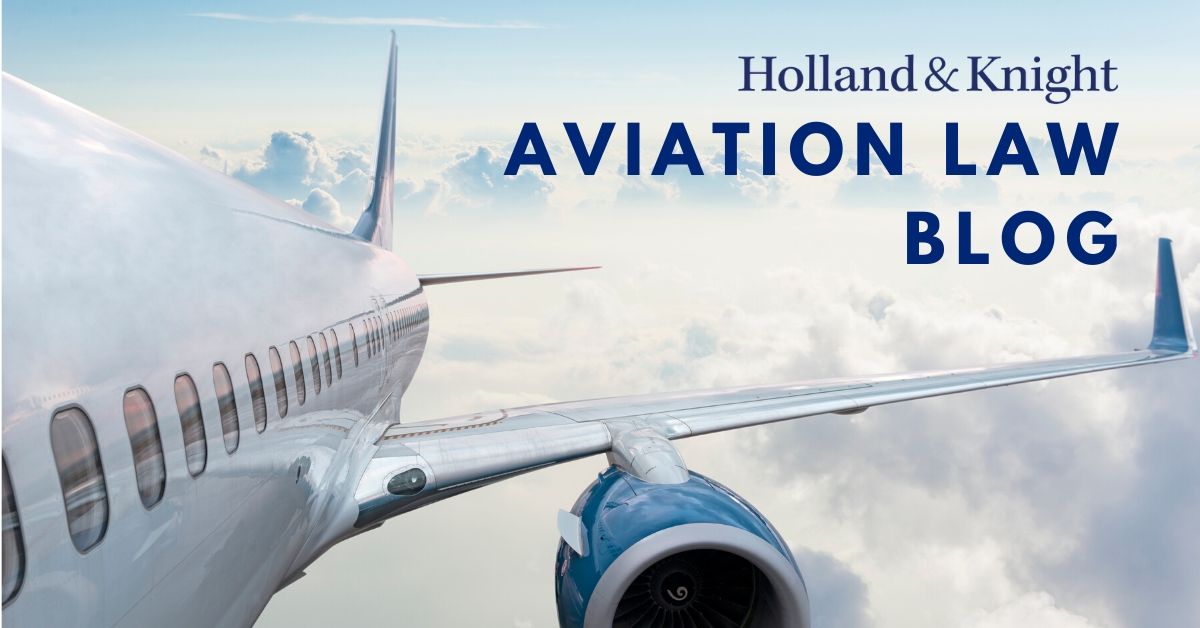Carrier Obligations to Make COVID-19 Related Flight Refunds: DOT Clarifies Policy

The COVID-19 pandemic has triggered a drop in air travel and a wave of airline flight cancellations. Reeling from widespread operational challenges and sudden (and massive) loss of revenue, many air carriers in recent weeks have scrambled to address the needs of travelers whose plans had changed by offering vouchers for future travel. Even though some governments had implemented policies that permit carriers to do this,1 the U.S. Department of Transportation (DOT) late last week issued a policy “clarification” that requires air carriers to offer passengers refunds of fares paid, even if the tickets at issue were non-refundable.2
DOT’s regulatory scheme had given rise to considerable confusion in the marketplace. There are no formal regulations squarely on point, with the department basing its policy on its view that a failure to make a refund would be an “unfair and deceptive” practice prohibited by 49 U.S.C. 41712. While DOT previously had issued informal statements of policy on carrier refunds,3 the department’s own website, intended to make the agency’s policies more transparent, actually fueled the confusion. While the relevant page did mention the right to refunds, the statement pertaining to carrier refunds appeared under a subheading which referred to “fault.” Many air carriers reasonably took the view that, unlike a mechanical problem or a prolonged flight crew delay, the cancellations here were not a result of carrier “fault,” so that language did not apply.
Faced with widespread confusion, DOT late last week issued a statement that cited to its past precedent, stated its expectation that carriers would promptly provide refunds for cancelled flights and demanded that carriers quickly come into conformance. The latest statement, which can be found on the DOT website, reminded carriers that their refund obligation does not cease when flight disruptions are outside of the carrier’s control (e.g., due to government restrictions). Instead, the agency stated that when its website referred to “fault,” it meant that the rule would apply when the flight cancellation or significant delay was through no fault of the passenger.
Acknowledging the confusion, DOT has nevertheless stated that although it believes that a carrier denial of refund is a violation of DOT rules, it has given carriers the opportunity (for an unspecified period of time) to review and update their policies and practices and to start to make required refunds. Although carriers whose contract of carriage provisions or airline policies purport to deny refunds to passengers under these circumstances are at risk of enforcement action; in light of the COVID-19 crisis impact on the airline industry, DOT will refrain from pursuing enforcement action against a carrier that provided passenger vouchers for future travel in lieu of refunds for cancelled or significantly delayed flights as long as the carrier:
- promptly informs all passengers who were provided vouchers for cancelled or significantly delayed flights that they have the option of a refund
- updates its refund policies and contract of carriage provisions to make clear it provides refunds to passengers if the carrier cancels a flight or makes a significant schedule change, and
- reviews with its personnel (reservationists, ticket agents and other customer service employees) the circumstances under which refunds should be made
DOT also issued a press release on the issue. DOT does have regulations in force concerning the requirement to promptly make refunds once the entitlement to a refund has been established.4
This new policy has been met with cheers from consumer rights groups and a harsh rebuke from the International Air Transport Association, the global airline trade association, which warned that DOT’s policy will exacerbate an already-severe airline liquidity crisis.5 We will continue to monitor this issue and to watch for private claims that may arise out of disputes relating to refund issues.6
Notes
1 See, e.g., Canadian Transportation Agency, Statement on Vouchers, March 25, 2020.
2 See U.S. Department of Transportation, Enforcement Notice Regarding Refunds by Carriers Given the Unprecedented Impact of the COVID-19 Public Health Emergency on Air Travel, April 3, 2020.
3 DOT issued a statement concerning airline refund obligations after 9/11, and also issued commentary on refunds when it issued its Enhancing Airline Passenger Protections Rule. See DOT Email Message to Major Airlines and Aviation Associations, Sept. 25, 2001, concerning the aftermath of the 9/11 attacks on the World Trade Center and the Pentagon, and 76 Fed. Reg. 23110, 23129 (April 25, 2011), respectively.
4 See 14 CFR § 259.5(b)(5) (imposing the requirements 12 CFR § 226.12 (Regulation Z)) and 14 CFR § 374.3(b).
5 See IATA’s Argument Against Flight Refunds.
6 While DOT regulations preempt private passenger claims and actions for violations of federal regulations, the Airline Deregulation Act did not preempt private claims and lawsuits based upon breach of contract. In American Airlines v. Wolens, 513 U.S. 219 (1995), the Supreme Court held that the “savings clause” of the Airline Deregulation Act, which preserved rights preexisting under common law or statute, did not preempt state law breach of contract claims.
